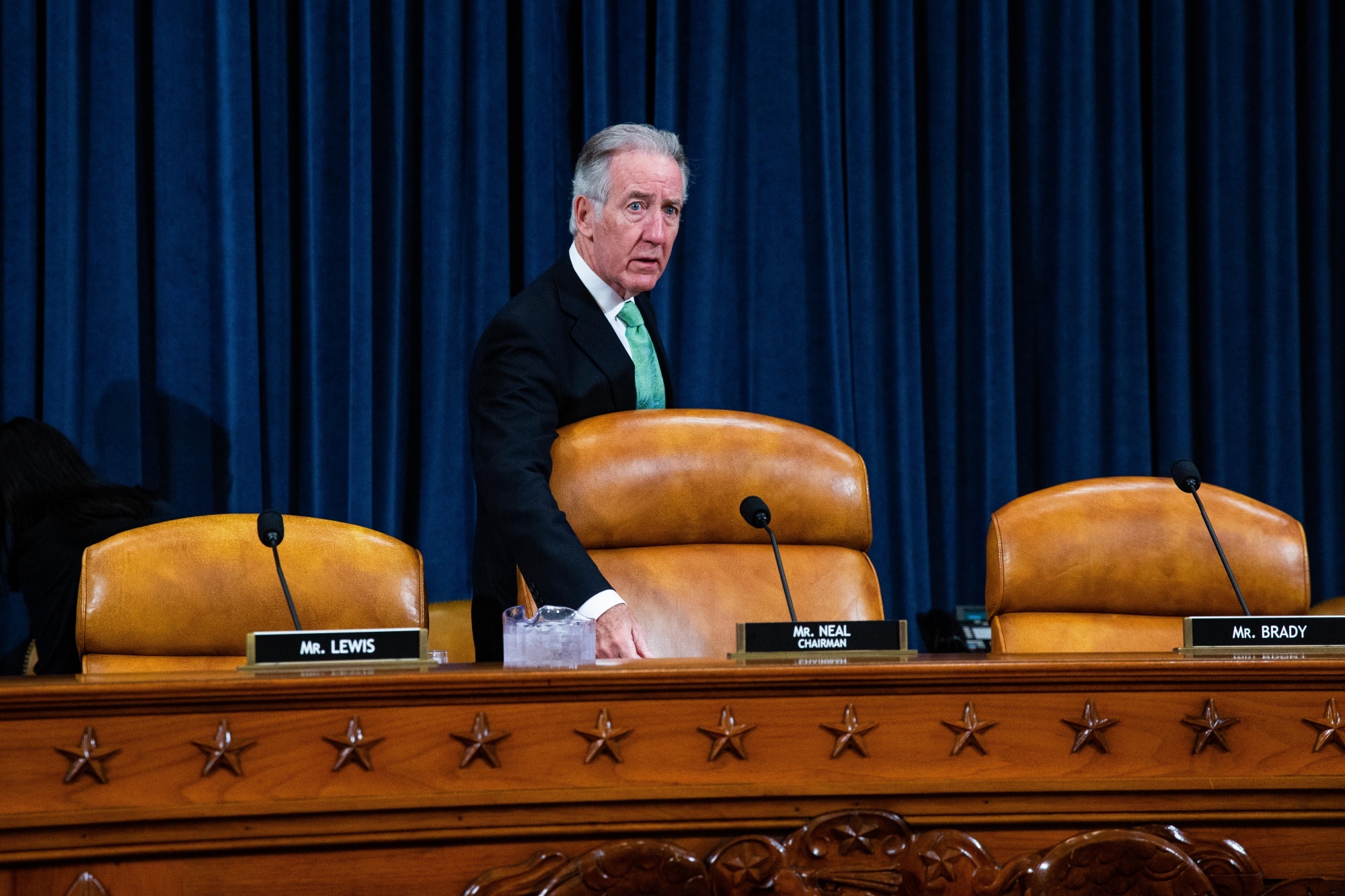The Internal Revenue Service agreed Friday to quit sending notices about unpaid taxes to taxpayers while it works through the backlog of millions of pieces of unopened mail that has accumulated at IRS facilities during the novel coronavirus pandemic, after complaints from taxpayers and lawmakers.
Earlier this week, Rep. Richard Neal, who chairs the tax-writing House Ways and Means Committee, sent a letter to IRS Commissioner Charles Rettig complaining about the notices and asking him to put a stop to them (see story). He pointed out that the checks could be waiting in unopened envelopes stored in trailers outside IRS facilities, where millions of pieces of mail have been accumulating since the outbreak of the pandemic.
Even though many IRS employees have returned to work to deal with the mall backlog and other pressing matters, more mail keeps coming in each day. Last week, the IRS added guidance to its web page on COVID-19 operations, saying it would post the payment as of the date it was received rather than the date when it was finally processed, but taxpayers shouldn’t cancel the checks they have sent, in order to avoid interest and penalties (see story). Neal urged the overwhelmed agency to stop sending out the notices in the meantime.
The IRS now says it will temporarily stop sending out notices to taxpayers with balances due. It said it has suspended the mailing of three notices: CP-501, CP-503 and CP-504.
“Although the IRS continues to make significant reductions in the backlog of unopened mail that developed while most IRS operations were closed due to COVID-19, this temporary adjustment to processing is intended to lessen any possible confusion that might be associated with delays in processing correspondence received from taxpayers,” said the agency. “The IRS is taking the step to avoid confusion for taxpayers who previously received a balance due notice (CP-14) and mailed a payment to the IRS; however, that payment may still be unopened.”
The CP-501, CP-503 and CP-504 are follow-up notices that are automatically sent to taxpayers who don’t respond to the first notice, the CP-14. The automatic follow-up notices will be temporarily stopped until the IRS manages to reduce the backlog of mail.
Neal (pictured) praised the move to halt the notices for now. “This announcement is a huge win and relief for taxpayers,” he said in a statement. “The last thing Americans need in the middle of this pandemic is an unnecessary scare from the IRS regarding tax bills that have already been paid but are stuck in a backlog. The suspension of these notices while the IRS processes its mail will spare taxpayers of needless confusion and worry. I urged the IRS to take this action because I know how important it is for American taxpayers to have the fullest confidence in the IRS notices they receive, especially during this time of tremendous uncertainty and financial pain.”
The IRS plans to continue to reassess its inventory of unopened mail to decide when to resume sending out the follow-up notices. However, the IRS is encouraging taxpayers who have received but not yet responded to a CP-14 notice to promptly respond to it.
The IRS reiterated Friday its previous guidance that the payments in the unopened mail will be posted and credited on the date the IRS receives them, as opposed to the date the agency opened and processed the payments. The IRS also reminded taxpayers they shouldn’t cancel their checks while waiting for them to be processed and make sure the funds are still available so the IRS can process them and taxpayers can avoid being charged potential penalties and interest.
To provide “fair and equitable treatment,” the IRS said it’s also providing relief from bad check penalties for dishonored checks received between March 1 and July 15 due to delays in IRS processing. Those delays could be exacerbated by recent changes in the U.S. Postal Service by the new Postmaster General, Louis DeJoy, who was grilled during a Senate oversight hearing Friday about the delays in mail delivery around the country amid reports of the removal of mail-sorting equipment and blue mailboxes along with reductions in overtime and return trips by carriers to pick up undelivered mail. DeJoy faces another oversight hearing in the House on Monday.
As for the IRS, the agency warned that some of the balance due notices may still be showing up in mailboxes for a while, despite the policy change. “As the IRS works to stop these mailings at our processing centers, some taxpayers and tax professionals may still receive these notices during the next few weeks due to delivery of existing mailings,” said the agency. “Due to high call volumes, the IRS suggests waiting to contact the agency about any unprocessed paper payments still pending. See www.irs.gov/payments for options to make payments other than by mail.”